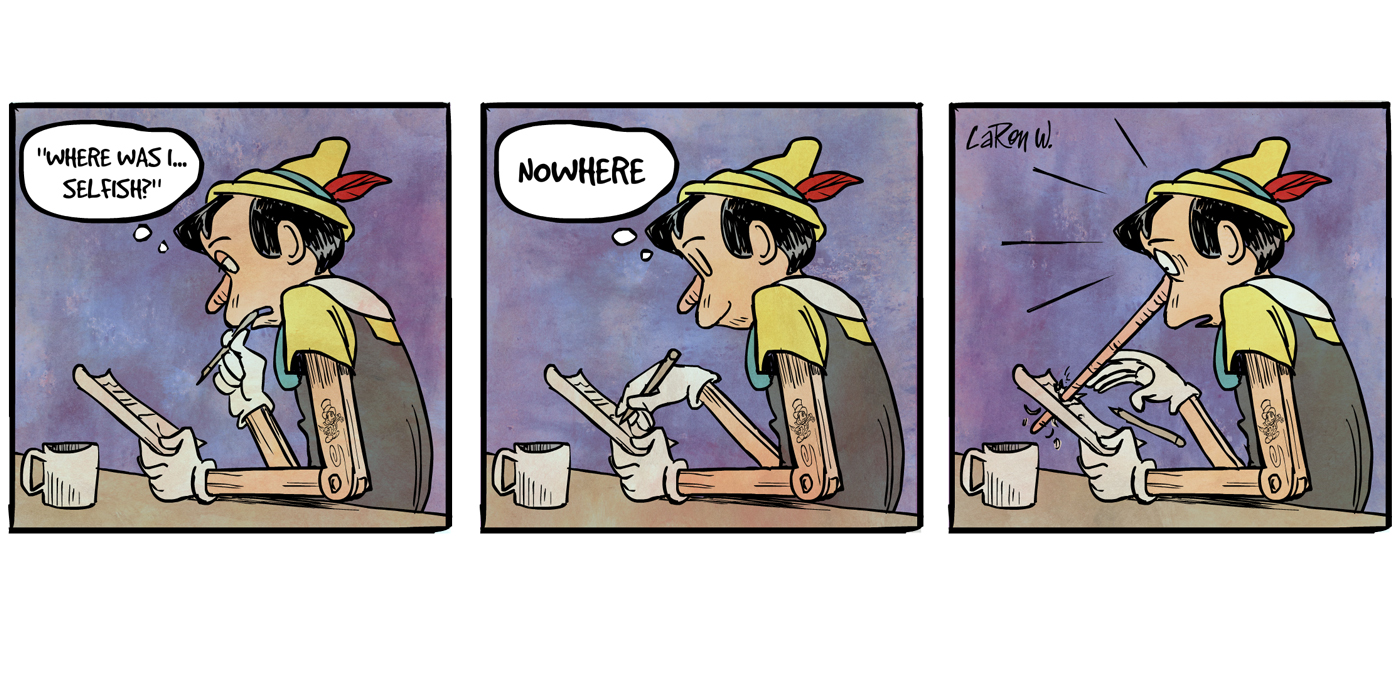In my early sobriety, SA service provided many opportunities for spiritual growth. My sponsor continually explained the need for a solid grounding in the Steps as the basis for successful service work. As I matured, so did my idea of “successful service.”
In the beginning, the slant of my approach was to help the fellowship change in the direction that I knew in my heart it needed to grow. With much excitement, I avidly read all I could about the Traditions. I believed that God was going to use the great education, intellect, and vision He had given me to bring SA to the next level. Also, unlike many SAs, I had service experience in recovery fellowships much older and wiser than SA. My leadership qualities were exceeded only by the great humility with which I expressed the wisdom I imparted (yeah, right!). But in spite of my heroic gentleness and tolerance, my frustration grew as my fellow members failed to recognize the virtues of my numerous suggestions for improvement. I found myself challenged to maintain a posture of love and helpfulness when confronted with such unreasonableness! My vision of success in service work eluded me.
Fortunately, I was being sponsored by a member who had worked the Steps with a sponsor. He once explained that he had been 100% successful in sponsorship. Had everyone he had sponsored stayed sober, then? No, he explained, but he had. Thus my idea of success in service began to be transformed. Not long afterward I was reminded by members who had relapsed while engaged in service work that if my attitude toward service takes me to a “higher level” than that of my fellows, I am in great peril. If my “primary purpose” becomes to “fix the fellowship” and relate as a consultant to the “less knowledgeable,” I cannot maintain true membership in the spirit of anonymity, and I am likely to lust again.
Today my perspective on being a trusted servant is much different. I realize that those who came before me gave freely of themselves to keep the doors of SA open during a time when I was trying to control and enjoy lust, rather than seeking to be helpful to others. As a result of their sacrificial actions, recovery was available to me when I became ready to seek it. Today, I am motivated to serve because of deep gratitude for my sobriety, rather than by any certainty that I know what’s best.
Don’t get me wrong—I usually believe I’m right—a character defect that has not yet been removed. I note, hopefully with identification rather than judgment, that many of my SA friends have similar confidence in their own ideas. But I’m beginning to let go of the idea that everything I think I know for sure is necessarily so.
The Traditions, like the Steps, are guides for me to live my life. My problem is me. It’s not my job to get others to follow these principles, but rather to make sure I follow them myself. We lead not by mandate, but by example [see 12&12 135]. If I live according to these principles, my way of life will invite others to join me, without me demanding them to do so. That is the fruit of the principles. If I become obsessed with getting others to change, then, even though my motives might be good, I’ll get sick, and my good motives will end up causing harm. Good motives are my favorite excuse to act outside of principle. The Traditions are designed to protect the fellowship from my very best motives. They can only do this if I choose to follow them.
Recently I received a phone call from a sponsee who had begun attending a different meeting. He was disturbed by some of the group members’ actions, which he felt were out of bounds with the Traditions. As he asked for suggestions on what the next right thing was, I heard fear in his voice. While I agreed with most of the specific concerns he had about the Traditions, it was apparent that he was relating to these recent acquaintances solely on the basis of what he perceived was wrong with them.
I have been told that sexaholics have emergencies—but SA does not. So I suggested he set his concerns aside for a while and begin focusing on things that the members were doing right. I also suggested he read Alcoholics Anonymous pages 418-420 (4th edition). His attitude quickly began to change, and he was able to begin forming positive relationships with some group members. In time, he felt able to express his original concerns without any sense of judgment or fear.
Often my idea of what’s right blocks me from forming meaningful connections with others. I can only see others through the lens of my own opinion, and I become trapped in the world of self. I believe that in much of the service work we do, the togetherness is more important than the actual task. The Traditions, I believe, are about relationship.
When I submit to spiritual principles, my arrogance and self-righteousness don’t have to harm anyone. I can be present, listen thoughtfully without waiting for my turn to respond, and then at the appropriate time, tell the truth about what I think and feel with love and respect. I trust the group conscience to be guided in the right direction by our loving Higher Power. Even on the odd chance that I’m “right” about a situation and the group can’t see it, surrendering my need to be right to the group’s ultimate Authority has enabled me to remain a part of this beautiful fellowship even when I disagree. Far more often than not, in my persistent grandiosity, I will once again be surprised at how far God’s wisdom exceeds my own.
Steve S., Memphis, TN






